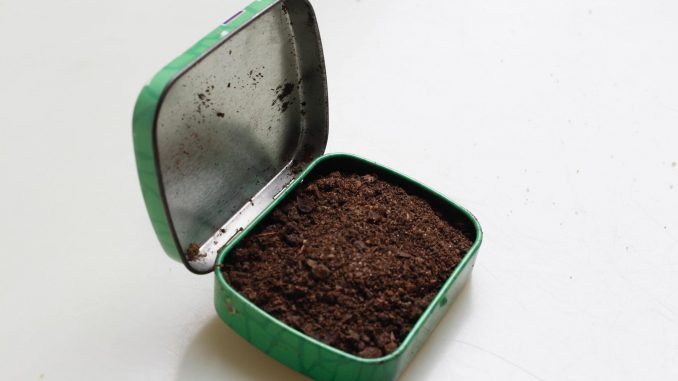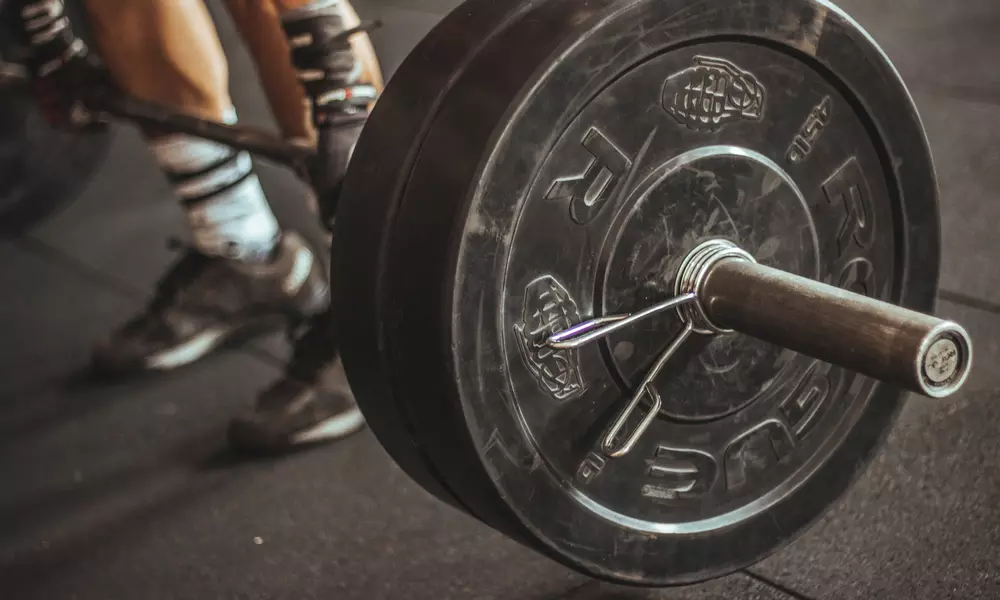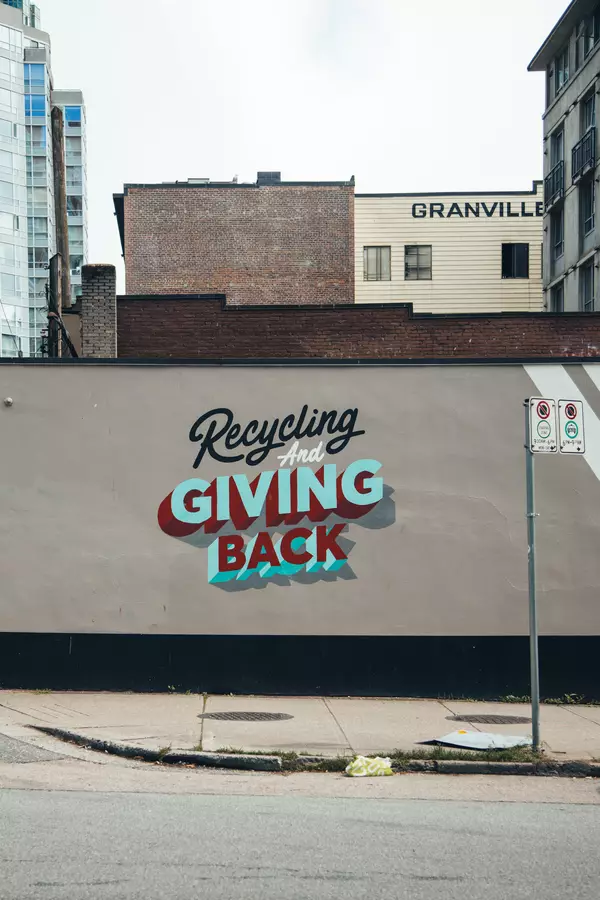
Around here, composting vs. recycling is like a fight between Mom and Dad, we love them both!
The amount of material you throw into your recycling bin varies greatly. Different types of materials get recycled at different rates, but it is always lower than 100%.
On the other hand, you can be sure that 100% of the waste chucked into your compost stays out of a landfill.
But how much does composting actual help the environment and how does it compare to recycling?
Composting Statistics – 600 lbs of Waste!

One way to think about composting vs. recycling is to think about the weight of the waste in question.
Composting diverts your waste from the landfill, but how much can a few vegetable scraps really weigh? You’d be shocked how much it impacts the amount of trash you bag up.
According to the EPA, U.S. citizens diverted about 0.45 pounds per person per day for composting (compared to 1.13 pounds per person per day for recycling).
We weighed our compost over a two week period. Then we used some basic math to extrapolate for the full year. Our compost weighed in at about 11 pounds of waste per week. That equals almost 600 pounds of waste per year for a four person household!
By the way, that works out to be amazingly close to EPA’s estimate (.4 pounds per day per person), good job EPA!
Importance of Composting
In the battle of composting vs. recycling, composting is no joke. The environmental benefits of composting are significant.
Composting is easy and in a weird way, kind of fun. All you need is to decide what type of compost bin you want, compost tumbler vs. bin, then you are ready to go.
Like a little science experiment in your backyard, you will be astounded to see how quickly and efficiently nature disposes of its waste. The amount of time and energy you put into composting is up to you.
You can use techniques to really speed up the compost cycle and get fresh soil quick. Or use a lazy approach, and let nature do its work with minimal intervention.
Also, the output of the landfill process is toxic juices and climate-crashing gases. The output from composting is soil for a more beautiful garden.
Composting has the following benefits to our earth:
- Organic waste in landfills generates, methane, a potent greenhouse gas. By composting wasted food and other organics, methane emissions are significantly reduced.
- Compost reduces and in some cases eliminates the need for chemical fertilizers.
- Compost enhances water retention in soils.
- Compost increases carbon sequestration in the soil.
Also, you can compost more than just veggie scraps. Did you know you can compost paper towels? How about all that junk mail jamming your mailbox? Yep, that too!
Even the waste products of your own body – human urine, dried blood, and hair! Sorry, science can be gross.
The Amazing Efficiency of Composting
About ten years ago I was introduced to composting by my amazing older sister, Meg, otherwise fondly known as the Creative Vegetable Gardener. Meg, the owner of a gardening and lifestyle blog, is an expert gardener, food preserver, public speaker, sustainable living guru, and all around inspiring sibling.
When Jess and I graduated from studio apartments and bought our first house in Washington DC, we began gardening in some soil that hadn’t been tilled in what seemed like 50 years.
Meg suggested getting a compost bin (like this one made of 100% recycled plastic) as a way to have a continual source of nutrients to enrich our soil.
Composting opened my eyes to the astounding efficiency and minimal waste of natural processes. Nature deals with its waste in such an amazing way – there is no waste!
Your compost bin is basically a mini ecosystem, recycling your biodegradable waste, step by step, into the ingredients necessary for enriched soil, and thus helping to grow more plants and more life.
Throw in a napkin, a ripped up pizza box, any veggie or fruit scrap, plant-based sponges, tea bags (with the strings), and everything just magically disappears! Except one thing – plastic.
The one thing I always found left over in the bin during my springtime routine of soil harvesting was the little plastic stickers they put on fruit and veggies in the supermarket.
It didn’t matter how long they were left in there. They never broke down. They were the only piece of true waste in all that garbage I threw in, the wrench in my little super-efficient system!
Recycling Works, Mostly

When you think about composting vs. recycling, it is wise to take a hard look at recycling. We did a deep dive on the recycling movement’s checkered past. There are reasons to be skeptical about recycling, but don’t give up on it.
For one, many materials get recycled at relatively high rates. Aluminum and metal are recycled at high rates and according to the Sustainable Packaging Coalition, the demand is so high for used aluminum cans we actually import them from other countries.
Of course, the organisms that eat the garbage in your compost bin cannot decompose your used beer can. When we think about composting vs. recycling, we are really asking what is best for paper-based products.
There is no question that recycling paper saves energy, saves water, and reduces greenhouse emissions. Recycling one ton of paper saves enough energy to power the average home for six months and 7,000 gallons of water.
Recycling Paper Fights Climate Change
Keeping paper out of landfills is important for climate change. Buried in a landfill, discarded paper produces methane, a highly potent greenhouse gas up to 34 times more powerful than carbon dioxide.
According to the EPA, paper is the largest, in terms of weight (but excluding steel), type of material recycled in the US.
In terms of the percent of paper that actually gets recycled is relatively high (when compared to other materials like plastic). Sixty to seventy percent of paper entering the recycling stream is recycled.
When Composting Beats Recycling
You definitely should choose composting for paper you shred – bank statements, credit card statements, anything with sensitive information. Most recycling programs do not accept shredded paper.
Shredding paper actually degrades its integrity, making it harder to recycle. That said, if you need carbon sources for your compost bin, mail with sensitive info that you shred is a good option.
Just make sure you use the right kind of shredder.
In terms of other paper that isn’t shredded, you have a choice to recycle it or compost it.
Paper products soiled by food are a good option for composting vs. recycling. Manufacturers need clean material for making new products.
Though there is some debate on the interwebs about whether pizza boxes should be recycled or not. Pizza boxes are compostable.
Though demand for recycled paper fiber exceeds supply, according to the Sustainable Packaging Coalition, it is not because of lack of material. It is actually constrained by the number of mills available to process the recycled material.
In the end, the choice between composting vs. recycling is a choice between two good options. You can rest assured that both reduce emissions and lower your impact on the environment.
Here at R&R we only endorse products we have owned, tested, and fell in love with. If you end up making a purchase through one of our affiliate links, we may earn a very small commission that offsets the cost of hosting, building, and maintaining this site. We encourage purchasing products directly from companies since many of the ones we highlight are small businesses.